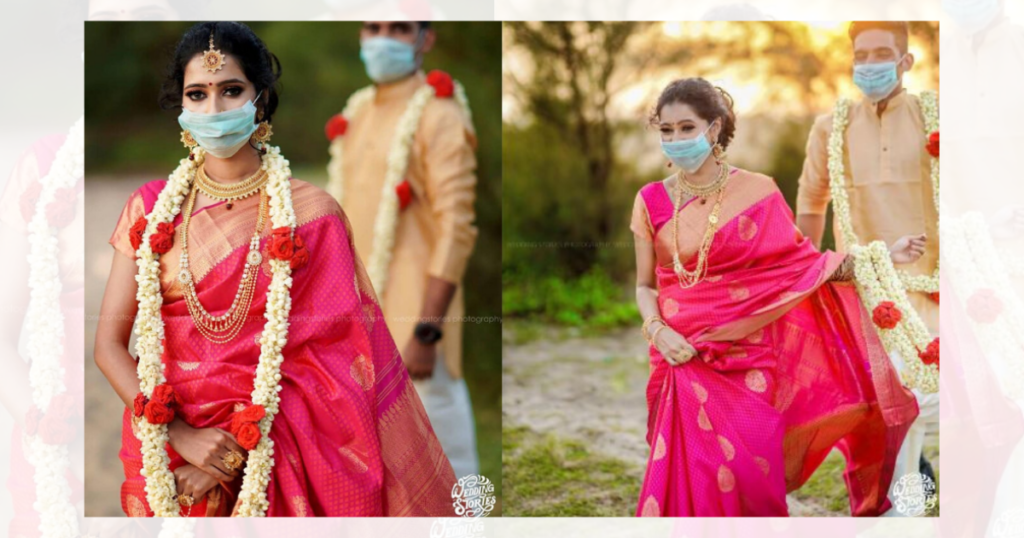Life and circumstances are uncertain. Any day you can’t expect what’s going to come your way. Just like, the wedding dates of many couples went affected when the Coronavirus (COVID-19) appeared as a pandemic across the world.
Weddings have been a grand and costly affair in India involving so much of expenditure. And, It can be even more explosive when families have to face unwanted situations like natural calamity, human-made perils, accident, injury, and much more.
So, with a relatively small fee, wedding Insurance can be a way to offset some of the uncertainties or possible disasters that can ruin your big day. It can reduce the financial burden because of an unforeseen event, which might lead to a wedding for cancellation or delay.
Here are a few of the crucial points that are a must for every couple to know about Wedding Insurance in India. It’s benefits, coverage, companies offering it, and do we need the insurance during this time to cover our special day!
What is Wedding Insurance?
Wedding insurance is customized event insurance that includes all the specific risks related to marriages. The typical terms cover postponing or cancellation of the wedding due to the sickness or injury to the bride, groom, or any other person relevant to the wedding.
It protects the families’ investment from the circumstances which are not in their control and compensates expenses incurred. There are a few things that are covered by insurance like the venue, vendor, weather, sickness, or injury. A particular amount is fixed under each head that can be claimed, and a deductible also applies.
Benefits of Wedding Insurance for couples
There are certain advantages that couples might get with Wedding Insurance as per their convenience.
- The scope of wedding insurance includes cancellation of the wedding due to natural and human-made pitfalls that involve damage to property and injury or death of a person.
- Wedding insurance covers on the Public Liability front where such injury or damage as a result of an accident at the wedding event venue during the policy period.
- Wedding insurance includes damages caused to the property due to natural and manmade perils. Also, covering the temporary set up, jewels, and others.
- The Personal Accident cover under such policies offers a refund for pre-declared individuals against disablement and death.
- On D-day, a problem might arise regarding the venue, weather, sickness, or injury of the bride, groom, or other essential people, which can incur substantial losses to both the parties following cancellation or delaying the wedding. So, there is a maximum fixed amount that can be claimed under various heads from the insurance company.
What is not covered in Wedding Insurance?
There are certain things that wedding insurance doesn’t cover for couples and families. Instead of being customized convenience, it has few guidelines that you should look up before agreeing to it with insurance companies and agents.
- If the wedding couple changes their mind and the wedding gets called off, it is not counted.
- Watches, jewels (unless written in the policy), semiprecious gemstones, or pearls are not covered, even if they are attached to the attire.
- The policy may cover the wedding ring, but the engagement ring is certainly not.
- If there is a cancellation of the wedding event due to political strike, civil unrest, terrorism acts in the destination city, or native place is not considered for compensation.
- The persons mentioned under the policy are kidnapped during the event.
- If the claim made is about persons not reaching the venue on time due to the unavailability of transport services.
- Insurance doesn’t cover any after wedding consequential losses due to the cancellation of the wedding.
- Death or any physical abuse caused to the persons isn’t insured due to war or war-like situations.
- If the persons insured, have self-inflicted injury or suicide.
- Any ban imposed by the state or central government.
- A wedding under any pressure, criminal acts, misconduct, willful negligence, insolvency, and influence of drugs or alcohol are also not covered in the insurance.
Companies offering wedding insurance in India
The wedding insurance premium depends upon many factors like quantum of risk covered, the time horizon for which the risk is to be covered, etc. The companies usually provide a customized cover. Broadly, the range of premium varies from 0.75-1.5% of the total protection, depending on the risk factors.
Since the financial risk is higher at weddings also, insurance is the best option to recover the loss. People here hardly seek wedding insurance as it is not very common in India. But, with the changing scenarios and increased cost of traditional weddings, there are a few Indian companies that offer its coverage like ICICI Lombard, Bajaj Allianz, and Future Generali.
When to take in concern?
Well, this entirely depends on the couple and their families that how much they are spending so far. Also, both parties need to think about the various consequences of insecurities and uncertainties that might appear. For maintaining peace of mind, wedding insurance can be a side option that you can have 15-20 days prior to the event.
Every insurance policy and every wedding is different. So, there is a need to be careful with clauses contained in policy like what is covered, what is not, and to what extent.
In India, wedding insurance is taking its trend at a slower pace. Now, as people are spending vast amounts on destination weddings and functions, one wants to ensure they cover. However, Indian mindsets are strong that they don’t believe in cancellation or postponing of marriages once planned. But having insurance in hand is no harm to the safer side.




